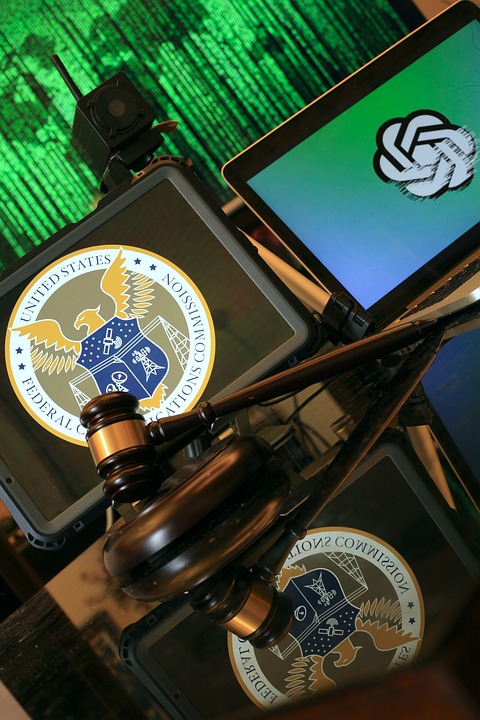Artificial Intelligence and Robotics: A Dynamic Relationship
Artificial intelligence and robotics are two intertwined fields that have the potential to revolutionize the way we live and work. In recent years, both have seen significant advancements, and their relationship has become increasingly important in various industries, including manufacturing, healthcare, and transportation.
Understanding the relationship between artificial intelligence and robotics requires a grasp of the fundamentals of each field and how they intersect. In this article, we will explore the connection between AI and robotics, the impact of this relationship on society, and the potential future developments in these fields.
### Understanding Artificial Intelligence and Robotics
Artificial intelligence (AI) is a branch of computer science that focuses on creating machines capable of performing tasks that typically require human intelligence. This includes tasks such as decision-making, problem-solving, speech recognition, and language translation. AI systems can be classified into different categories, including machine learning, natural language processing, and computer vision.
On the other hand, robotics is the branch of engineering and science that deals with the design, construction, and operation of robots. Robots are programmable machines that can be used to perform tasks autonomously or under the guidance of a human operator. Robotics encompasses a wide range of applications, from industrial automation to service robots in healthcare and entertainment.
### The Intersection of AI and Robotics
The relationship between AI and robotics is best exemplified by the concept of “intelligent robots,” which are machines that can perceive their environment, make decisions, and perform tasks without direct human intervention. These robots rely on AI algorithms and sensors to sense and interpret their surroundings, enabling them to adapt to changing conditions and interact with humans in a more sophisticated manner.
For example, consider the autonomous vehicles being developed by companies such as Waymo and Tesla. These vehicles leverage AI technologies, including machine learning and computer vision, to navigate and make real-time decisions on the road. By combining AI with robotics, these vehicles can detect obstacles, interpret traffic signals, and react to complex driving scenarios without human intervention.
### Real-Life Applications
The relationship between AI and robotics has numerous real-life applications, with advancements in these fields revolutionizing various industries. In manufacturing, AI-powered robots are being used for tasks such as assembly, welding, and packaging, leading to increased efficiency and productivity. These robots can adapt to changes in the production line and work alongside human workers in collaborative settings.
In healthcare, robots equipped with AI algorithms are assisting surgeons in performing complex surgical procedures with greater precision and safety. These robots can analyze medical images, navigate through the body, and provide real-time feedback to the surgical team. Additionally, AI-powered robots are being used as companions for the elderly and individuals with disabilities, providing physical and emotional support.
### Impact on Society
The relationship between AI and robotics has a profound impact on society, raising questions about the future of work, ethics, and safety. As intelligent robots become increasingly integrated into various industries, there is a growing concern about the potential displacement of human workers. However, proponents argue that AI and robotics can create new job opportunities and enhance the skills of the workforce, leading to economic growth and innovation.
Furthermore, the ethical implications of AI-powered robots raise important considerations regarding privacy, security, and accountability. For instance, autonomous drones and surveillance robots equipped with AI algorithms have sparked debates about data privacy and government surveillance. Additionally, the use of AI in decision-making processes, such as hiring and lending, has raised concerns about algorithmic bias and discrimination.
### Future Developments
The relationship between AI and robotics is poised to lead to exciting developments in the coming years. One area of focus is the development of humanoid robots, which aim to replicate human-like capabilities and interactions. These robots can be used in a wide range of applications, including customer service, entertainment, and healthcare. Additionally, advancements in AI are expected to enhance the autonomy and capabilities of robots, enabling them to perform more complex and diverse tasks.
Moreover, the integration of AI and robotics in the field of space exploration holds immense potential for scientific research and discovery. Robots equipped with AI technologies can be used to explore distant planets, perform extraterrestrial construction, and even assist in the colonization of other celestial bodies. These developments have the potential to expand our understanding of the universe and pave the way for new frontiers in space exploration.
### Conclusion
The relationship between artificial intelligence and robotics is dynamic and multifaceted, with implications that extend beyond technology and into the fabric of society. As advancements in these fields continue to grow, it is essential to consider the ethical, societal, and economic implications of intelligent robots. By understanding this relationship, we can navigate the opportunities and challenges that lie ahead and ensure that AI and robotics are used to benefit humanity as a whole.

